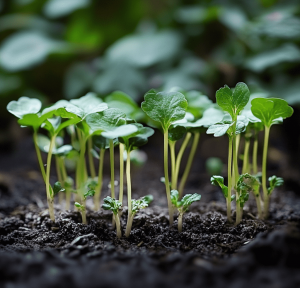Nitrogen is an essential nutrient for plants and plays a variety of key roles in plant growth and development. The following are the main functions of nitrogen in plants:
Protein Synthesis: Nitrogen is the basic component of amino acids, and amino acids are the building blocks of proteins. Proteins are essential for a variety of plant functions, including growth, enzymatic activity, and structural integrity.
Chlorophyll Production: Nitrogen is an important component of chlorophyll, the green pigment necessary for photosynthesis in plants. Adequate nitrogen levels help ensure efficient photosynthesis, allowing plants to convert sunlight into energy.
 |
 |
Hdrolyzed Protein
Oligopeptide ≥ 75% |
Growth and Development:Nitrogen promotes vegetative growth, resulting in lush leaves and overall plant vitality. It is especially important during the early stages of growth and during the development of new leaves and stems.
Formation of DNA and RNA: Nitrogen is a key component of nucleic acids (DNA and RNA) and is essential for cell division, growth and reproduction.
Nutrient Transport: Nitrogen assists in the transport of other nutrients within the plant, facilitating their movement to where they are needed most.
Stress Resiliency: Adequate nitrogen levels enhance a plant’s ability to withstand environmental stresses such as drought and disease.
In conclusion
In summary, nitrogen is essential for plant health, affecting growth, photosynthesis, and overall development. Ensuring that plants receive adequate nitrogen is critical for optimal growth and productivity.
For more information, please feel free to contact us:Info@g-teck.net
Post time: Oct-11-2024




